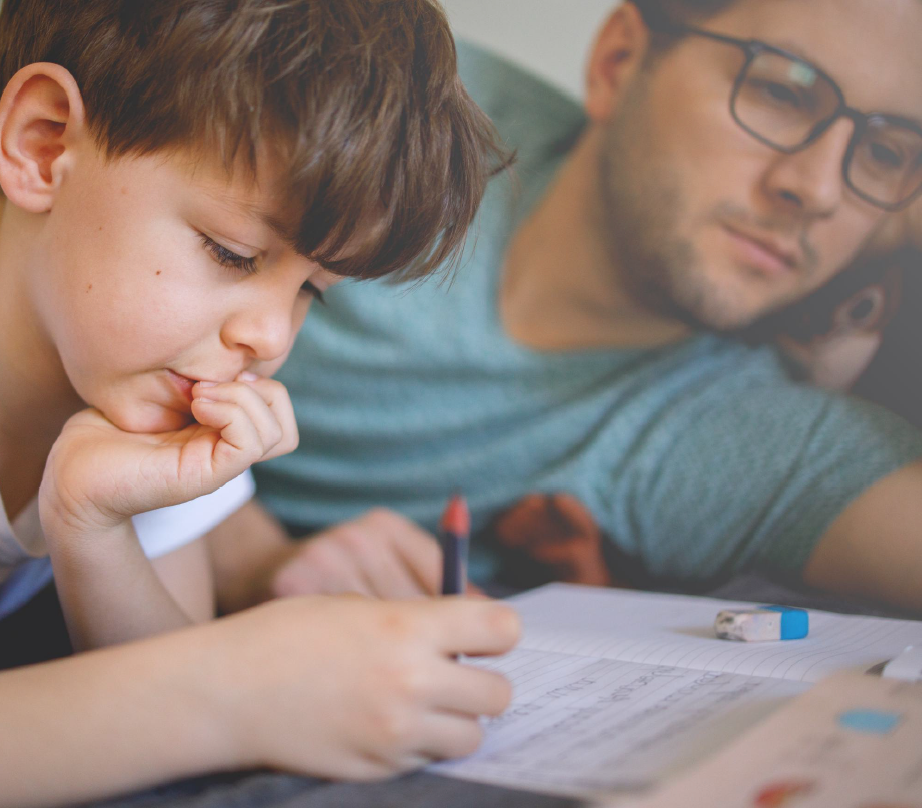A COVID Conversation with Kentucky Teachers: Some Light in Dark Times
- Lauren Ho
- Aug 13, 2020
- 7 min read
Updated: Aug 17, 2020
Download a PDF version of this blog post here.
A new and unusual school year begins. Over the summer, teachers reflected on many complicated issues as they prepared for an uncertain year ahead. How do we teach learners who are in many different places physically, academically, and socio-emotionally? Will the technology be more available and reliable than before, and how can we provide equitable opportunity to each of our students? Are we adequately prepared to onboard new students and, if necessary, to teach at a distance over a prolonged period? What am I learning that makes me think differently about my practice this year?
I know several things about teachers. They are some of the most dedicated and caring professionals in this nation. They know the needs of students better than any administrator or policymaker. As a former chief, I know they can lead the way if we provide them opportunities to do so. No doubt, this past semester has been different, difficult, and intense: many teachers and school systems struggled to adapt to distance learning technologies, adequately support English Language Learners or students with learning differences, reach younger learners, address students social and emotional needs, and communicate with families. Yet many teachers have responded to these challenges with creativity and enthusiasm. Their stories can guide our thinking about what happens next.
I recently had a conversation with a small group of Kentucky public school teachers as they were finishing the year supporting students from a distance. I wanted to know how they and their students were doing. I wanted to know what they could teach us at this moment in time to inform how we think and talk with others about re-opening. I do not pretend to presume all teachers’ experiences are similar to the ones in this interview, but each of their stories is important and, collectively, they offer insight and stimulate new ideas. We will continue to listen to and learn.
Throughout our conversation, I was struck by each teacher’s disposition toward problem-solving and growth as professionals. Their lives had dramatically shifted from the predictability of school schedules to “being on call” 24x7 at home. They desperately missed their students and being able to “look each one in the eye” and make sure they’re alright. Many were challenged to support the learning of their own children at the same time as their students. Yet there was no “woe is me” in the conversations, but a genuine embrace of the responsibility to maintain connection with and support every learner.
The teachers noted teaching at a distance intensified their efforts to “meet each learner where they are” and help maximize their learning. While anchoring student work in the state standards and being more deliberate about how to sequence and emphasize critical standards, they discovered new ways to give students choice in how they learn, what they learn, and how they demonstrate their learning – taking advantage of individual interests, students’ cultural identities, and out-of-school learning environments in ways that stimulated students to be more engaged. They relied heavily on formative assessment as part of instruction to ensure that each student made progress toward outcomes. Although it posed new challenges, they appreciated the fluidity of learning at a distance, noting that they understand now the 8am to 3pm, brick and mortar learning environment is not the best learning environment for many students and their families.

Breaking from old patterns of school made space for the teachers to get to know their students on new levels. The teachers developed more awareness of and respect for students’ personal lives. They also felt much more aware of how individual students identify, which is not necessarily the identity attributed to them by others as a member of some social group. They feel that because they know the children better, they and the students can be more successful in the long term. It was interesting that some are beginning to wonder about following the same students into the next year of learning if this situation continues, rather than passing the students and their families along to others. That question also raises important issues in their minds about how, as a group of professional colleagues, they can appropriately share information about students’ interests, strengths and identities with other teachers who will support them.
Along with stronger relationships with students, to a person, the teachers report having developed greater appreciation for the importance of direct and frequent personalized contact with individual families. Before COVID-19, all of these educators recognized the importance of parental/caregiver engagement and had communicated with families to some degree. Now, they have expanded those relationships and report greater empathy for the circumstances of the students’ home environments – as one teacher said, “life does not get more real than what many of them are going through right now.” The teachers say that many parents and caregivers are overwhelmed and need assurance that they are doing the best for their child. For some families, teachers are becoming a source of stability in times of incredible stress.
The teachers view these new relationships as critical and have worked to earn the kind of trust with families that ultimately benefits the student, and feel it is important to continue even if they have to give up something to do so. I was impressed with the degree to which the teachers are holding themselves accountable for going above and beyond the traditional expectations for “parent conferences” and to simply support parents as one human responding to the needs of others. One said “I thought I had strong relationships before, but what I have now is what I really want.”
The teachers pointed to several pre-existing supports that they felt were critical to navigating the challenges of this past semester, including Kentucky’s investments in educators as professionals and their participation in already-robust professional learning communities. The teachers noted that strong support from principals as learning leaders was critical to maintaining the culture of community, open dialogue and collaboration. To a person, the teachers had stories of engaging in and benefiting from the emotional support of peers.

In addition, each teacher is teaching in a district that is a part of Kentucky’s Non-Traditional Instruction Program (NTI), a legislatively authorized innovation that encourages the continuation of academic instruction on days when school would otherwise be cancelled, such as snow days. While not all districts had signed up for NTI prior to COVID, the innovation is rapidly being adapted across districts and communities with support from the state education agency to help support children and teachers in these extraordinary times.
Of course, engaging in NTI as the “new normal” exposed ongoing issues of unequal access to learning. Each teacher supported at least some students with no in-home access to technology and varying degrees of parental/caregiver support. Therefore all of them utilized paper packets to some extent, especially for very young learners. But they quickly identified the insufficiency of paper packets, which must be quarantined, delaying feedback and, predictably, resulting in less frequent communication. The teachers say the students completing paper packets are also much less likely to ask for help. They found creative ways to maintain connection with these families last semester but felt that any continuation of NTI next year would benefit from more widespread accessibility to online engagement – which the teachers felt was more immediate, transparent, interactive, and effective.
Nothing this past semester has been easy for this group, and their words say so much: “I am constantly second-guessing myself, have I done enough? What else should I be doing”, “I miss them and it hurts my heart not to be with them”, “It just hurts”. As challenging as it has been, however, they also appreciated being pushed out of a comfort zone and into an opportunity to reflect on what they should keep, improve, or cease in their practice.
In this spirit, we have pulled from this conversation a few essential questions for education leaders to consider as they prepare for the new future of education:
How can we create environments in which all teachers are empowered all the time to be creative, to assume the agency to be innovators, and to be supported in constant learning and professional growth? How can states and districts invest in educators as professionals, fostering professional learning communities whose ideas and learning are treated as assets that inform the system as a whole?
How can we elevate the importance of building teacher-student and teacher-family relationships as priority elements of our future success? How can we commit ourselves to enriching relationships and partnerships with families in order to make meaningful impact on student engagement and learning?
How can we preserve all that teachers are learning in this unprecedented time and take the time to observe, listen, and amplify stories of challenge and insight – particularly from diverse voices – to improve ourselves and our systems?
As a last reflection, it’s rather stunning to notice how our individual and collective capacity to believe in and act on what we previously thought impossible continues to expand. We prepare each day for a future that is uncertain and will be full of surprises - some welcome and carrying promise, and some extremely painful. Nevertheless, as educators we must pursue what we believe is best for the students we serve through individual practice and leadership, resist the temptation to trade what we have learned during this crisis for a rapid return to the stability of what we once knew as “normal,” and use our voices and those of our parents and communities to insist with new intensity on changes that will work for equity based on what we now know is possible.
Gene Wilhoit with Linda Pittenger
Acknowledgements
Gene Wilhoit and Linda Pittenger thank the following for a remarkable act of generosity - sharing their stories with us and being candid about their own learning as educators: Danielle Cooper, 7th grade ELA at Conner Middle School, Boone County; Sarah Hamm, 5th grade at Flemingsburg Elementary School, Fleming County; Bethany Dages, 8th grade Math at Ramsey Middle School, Jefferson County; Megan Gwinn, Biology at Marshall County High School, Marshall County; and, Kandace Holder, Kindergarten at Newton Parrish Elementary School, Owensboro Independent.




